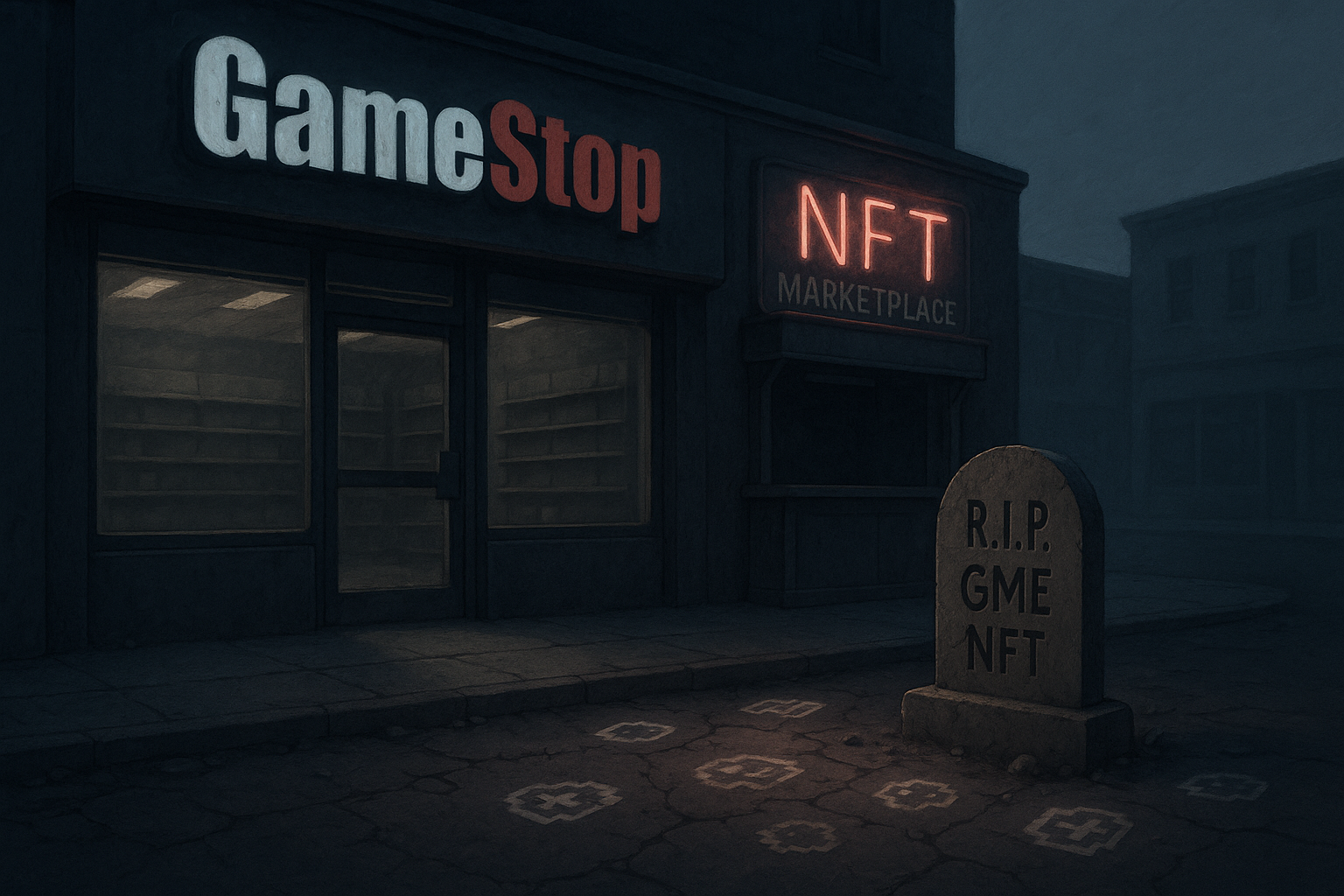GameStop is pulling the plug on its NFT marketplace in February. And honestly, who's surprised?
The life cycle of a meme stock reminds me of those fireworks that shoot up with a magnificent whistle, explode into dazzling colors, then leave nothing but smoke and a faint burning smell. GameStop—that brick-and-mortar relic that somehow became the battle cry of Reddit's WallStreetBets crowd in 2021—has been wandering through the digital wilderness ever since its moment in the spotlight, searching for... something. Anything, really.
I've watched this saga unfold since the early days of the short squeeze (back when mainstream financial analysts were still struggling to explain what "diamond hands" meant), and this NFT retreat feels inevitable.
The marketplace, launched in July 2022, was the corporate equivalent of showing up to Studio 54... six months after it closed. By then, the average NFT price had already plummeted 92% from its frothy peak. Talk about timing.
Look, there's a certain desperation-versus-innovation spectrum in corporate strategy. On one end you've got genuine innovation built from core strengths. On the other? "Quick, Jenkins! What's trending on Twitter? Metaverse? NFTs? Get me something with blockchain in it—the board meeting's in an hour!"
GameStop's marketplace was squarely in the latter camp.
The company says users have until February 2, 2024, to finish any NFT business before the digital doors close for good. After that, you can still transfer your assets elsewhere (because nothing says "valuable investment" like having to find a new home for your digital tokens).
What went wrong? Everything and nothing.
The fundamental issue wasn't technological—it was existential. What exactly was GameStop's NFT marketplace supposed to do that OpenSea wasn't already doing better? For a company whose DNA is rooted in physical game cartridges and discs, pivoting to purely digital assets wasn't just a strategy shift—it was an identity crisis playing out in real time.
This pattern repeats across the meme stock universe. Remember AMC buying a literal gold mine? Or selling branded popcorn in grocery stores? These aren't coherent business strategies; they're corporate vision boards made flesh.
(I once spoke with a retail investor who had poured his stimulus checks into GameStop and AMC. "It's not about the fundamentals," he told me, without a trace of irony. "It's about sending a message." Messages, unfortunately, don't show up on balance sheets.)
The marketplace wasn't even particularly innovative within NFT circles. It was essentially a me-too product in a space already crowded with established players. By the time GameStop mounted its horse, the NFT cavalry had already charged, fought, and retreated to lick their wounds.
GameStop's misreading of its own meme status speaks volumes. The Reddit-fueled price surge wasn't an endorsement of the business—it was a fascinating social phenomenon, a collective action against institutional short sellers, and let's face it, a bit of pandemic-era boredom seeking outlet.
So what's next? The company still has about $1.2 billion in cash, which buys time if not direction. Their existential challenge hasn't changed: how to matter in a world where games live in the cloud, not on discs.
Sometimes I think about Blockbuster, and how they once had the opportunity to buy Netflix for a song. The ghosts of missed pivots haunt retail history. Will GameStop join those apparitions, or find a genuine second act?
The shuttering of their NFT experiment isn't failure so much as... reality setting in. Not every wild swing connects. The question now is whether GameStop has another at-bat in them, or if they've already used their three strikes.
I guess we'll see. Things happen.
